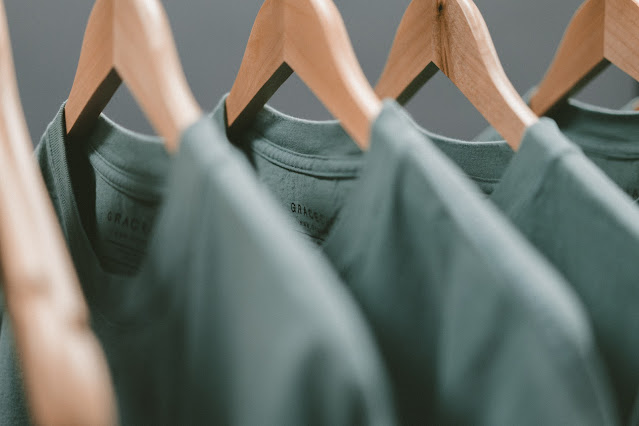I gave some thought to what "eco fashion" actually means today. Having spent the better part of three years working to establish an eco-friendly fashion label, I reasoned that I should be the first person on the planet to fully grasp the significance of the above. The problem is that it makes no difference if I fully grasp the significance of the term if other people struggle to see how it applies to their own lives. So, now we've arrived, and I'll do my best to define "eco fashion" for you.
Eco-fashion has the potential to be viewed as two separate concepts. First, the possibility that ecological and environmentally sustainable ideas are just a passing fad that will be forgotten or swept under the rug in the future. Second, eco-friendly style can refer to any article of clothing, accessory, fragrance, aftershave, or shoe that is manufactured with the planet in mind.
Eco-fashion, as applied to clothing and accessories, is fashion created with environmental consideration in mind, so this definition should be kept in mind. Exactly what does this imply? From where I'm sitting, it could mean four different things;
Eco-chic: clothing made entirely from natural products
Recycled fashion is clothing made from materials that would have been discarded otherwise.
Recycled materials that weren't originally intended for use in clothing are a key component of eco-friendly fashion, which benefits the environment in two ways: 1) through reduced resource consumption and 2) through direct philanthropic contributions.
My four groups adequately capture the spirit of "eco fashion," I believe. Many designers, brands, and labels have created products that can appeal to a wider public under the aforementioned umbrellas, but the population that actually embraces products made under the 'eco fashion' title is still relatively small at the present time. This is in no way a problem, as the concept of "eco fashion" is still in its infancy and has at least a century of established trends to compete with.
What will happen in the years to come is the more pressing question. Some may argue that this process has already started; is so-called "eco fashion" becoming more mainstream? Has it become apparent that going the "eco fashion" route is not so much more expensive and creates significant benefits in comparison to conventional production methods? Currently, the law of economy of scale dictates that anything done on a small scale will ultimately be more expensive. However, if "eco fashion" becomes widely adopted and all processes are inherently eco friendly, there will be no need for a definition, only a change in underlying principles.
Some may wonder why I am taking the time to write this, seeing as I am one of the many independent designers and manufacturers of "eco fashion" who will lose business as a result. It could be argued that customers who were interested in buying Excentree because of its specialised niche will no longer have any use for the service. But that's where you're wrong; yes, we'd no longer be a niche player, but it wouldn't be consumers who needed us directly; rather, it would be large retailers like department stores and clothing chains that could benefit from our knowledge and experience.For more information visit greetingsus .
We, the advocates of "eco fashion," are ready for this transitional period and will lead the charge toward a more sustainable future. If I am not mistaken, the point of "eco fashion" is to benefit both the customer and the planet, not to remain niche, so I will continue to advocate for its adoption by the mainstream. Recently, I've been puzzled by the widespread use of the phrase "eco has gone too mainstream" by people who call themselves eco-gurus, eco-reporters, eco-commentators, and eco-critics. Assume nothing but good will from your coworkers. To me, it makes no difference whether a multibillion-dollar corporation or a fledgling enterprise adopts environmentally friendly policies; every effort makes a difference. I understand why people would wonder how an oil firm could possibly care about the environment. It's not what they do best that matters, but rather that they recognise their accountability and choose to do something about it. It is absurd to assume that businesses will cease operations simply because their line of work is considered harmful to the environment.
Occasionally I worry that the current trend toward "eco fashion" is nothing more than a passing fad that will fade away once people get tired of it and there are simply too many people who follow the same trends. Eco fashion has the potential to be a force for good in the world, so rather than fighting or criticising the efforts of others because we don't like them crowding our fashion, we should all work together to make it a success. If we want to succeed, we need to take the long view and make sure that, as our niche expands as it should, we never lose sight of what's truly important. In conclusion, I would like to encourage everyone who cares about the future of our planet to help those who are just beginning to adopt an eco-friendly mindset. Don't lose sight of the big picture; our planet's natural environment is the real trend that needs preserving.
Excentree Fashion Collections was co-founded by James McAloon. Excentree Fashion Collections achieves a modern, cutting-edge look while remaining true to its organic, eco-friendly, ethical ethos.
Clothing from Excentree Fashion Collections is bold and contemporary because it is inspired by a wide range of powerful and expressive cultures from all over the world. The purchase of any Excentree item results in one tree being planted as part of one of seventeen reforestation initiatives in the agricultural sector. This ensures a cut of at least two tonnes in carbon output.







































No comments
We love hearing from you! Thanks for leaving us some comment love! If you're a new follower, please leave your link, so we can follow you back!